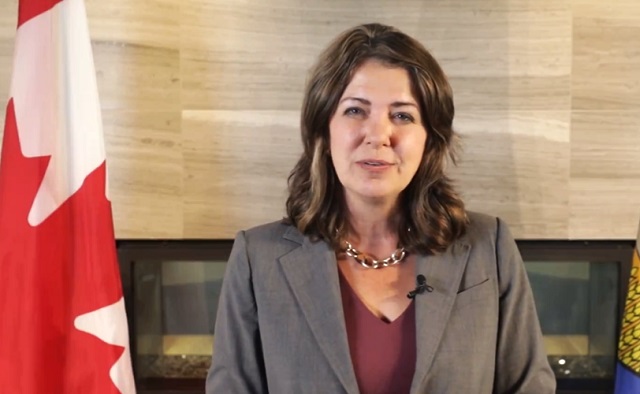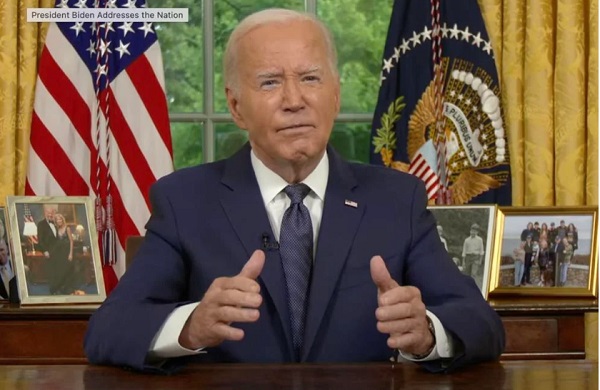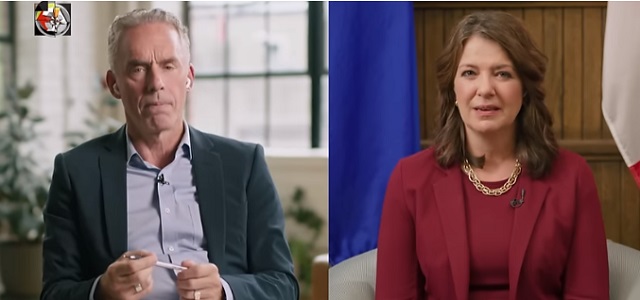Health
Pick up 2024 Red Deer Hospital Lottery tickets to be eligible for Previous Supporter Draws

Red Deer Hospital Lottery opens the 2024 Dream Home by Sorento Custom Homes April 12, 2024!
The dream home prize package is valued at $1,072,624.00 and includes furnishings and
accessories from Urban Barn.
Other prizes in the lottery this year include a Tree Hugger Tiny Home prize package valued at
$163,798.00, on display at the Red Deer Hospital beginning April 10th, two Early Bird cash prizes,
and electronics. The total prize value is over $1.29 million.
Proceeds from the 2024 Hospital Lottery and Mega Bucks 50 will contribute to acquiring critically needed, state-of-the-art equipment in several units at the Red Deer Hospital.
Don’t miss out on your exclusive chance to win in our Previous Supporter Draws – 5 cash prizes of $1,000 each! But there are only a few days left! Purchase your tickets before 11:59pm on April 11th to be eligible for the Previous Supporter Draws, and over $1.29 million in prizes.


|
|
|
|
|
|
|
|
|
Red Deer
2024 Hospital Lottery presents major prizes

Officials from the Red Deer Regional Health Foundation have presented the top prize for the 2024 Red Deer Hospital Lottery.
The Grand Prize Dream Home package is valued at $1,072,624, including furnishings by Urban Barn. The key was presented to the winner, Maxine Rumohr of Sylvan Lake.
When informed that she was the grand prize winner, Rumohr said winning the home is a “dream come true.”
“This is a nice dream that I hope I don’t wake up from,” said Rumohr when she heard the news.
The bungalow by Sorento Custom Homes features 2,796 sq ft of finished living space and has four bedrooms, two and a half baths, and a large, covered deck with vaulted ceilings. Among its features are a large primary suite with ensuite and soaking tub, a basement entertainment area, a walk-in butler’s pantry, main floor laundry, and a stone clad gas
fireplace.
Manon Therriault, Foundation CEO, expressed appreciation at the prize presentation. “We are incredibly grateful to the hardworking team at Sorento Custom Homes for bringing us a truly breathtaking Dream Home again this year,” Therriault said, speaking of the Red Deer Hospital Lottery’s biggest supporter. “Enormous thanks as well to our dedicated volunteers. All of Central Alberta benefits from the dedication of this tireless group of individuals who give so generously of their time each year.”
This year’s proceeds from the Hospital Lottery and Mega Bucks 50 will provide funding for critically needed equipment for several units at Red Deer Hospital.

Other prize winners present included Carolyn Pelerine of Cochrane, Alberta, who walked away with the $303,600 Mega Bucks 50 prize, as well as the winner of the Tree Hugger Tiny Home prize package valued at $163,798, Mary Vincent of Red Deer.

Red Deer Hospital Lottery 2024 Winners Fact Sheet
– 26th year of the lottery
– Built by award-winning Sorento Custom Homes
– Valued at $1,072,624
– Located at 16 Emmett Crescent, Red Deer
– Bungalow with 2,796 square feet of finished living space, four bedrooms, 2.5 baths
– Winner: Maxine Rumohr of Sylvan Lake, Alberta
Tree Hugger Tiny Home Prize – (includes accessories from Urban Barn)
– Valued at $163,798
– Winner: Mary Vincent of Red Deer, Alberta
Mega Bucks 50
– 50/50 raffle – Total jackpot of $607,200
– Winner of $303,600: Carolyn Pelerine of Cochrane, Alberta
Early Bird Prize
– $20,000 CASH
– Drawn May 16, 2024 at 2:00 pm
– Winner: Frieda Doz of Edmonton, Alberta
Second Chance Early Bird Draw
– $10,000 CASH
– Drawn June 6, 2024 at 2:00 pm
– Winner: Wendy Howe of Castor, Alberta
Additional Prizes
– Total value of all prizes was over $1.29 million, including dream home and tiny home
– Prizes included
o Cuisinart air fryer and Barista coffee maker (6), GoPro HERO 12 (5), Asus Vivobook Flip 14” laptop (10), DJI Mini 2SE Drone Flycam (4), Dyson V8 cordless stick vacuum (10), Goal Zero Sherpa 100AC power bank (5)
Proceeds
– Proceeds from Red Deer Hospital Lottery and Mega Bucks 50 contribute to acquiring critically needed, state-of-the-art equipment in several units at the Red Deer Hospital. This year’s lottery will fund equipment like a phototherapy system to allow parents to hold and soothe their infant while undergoing phototherapy, a cardiology case cart to monitor cardiac rhythms during stress testing, and other equipment to provide excellent care for patients at the Red Deer Hospital.
About Red Deer Regional Health Foundation
The Red Deer Regional Health Foundation is a fundraising organization for Alberta Health Services Central Zone, with a mandate to raise and disburse funds for programs, services, and the purchase of medical equipment.
Alberta
Alberta Premier Danielle Smith promises bill protecting rights to refuse vaccines is coming

From LifeSiteNews
The plan is to introduce an amended Bill of Rights this fall that includes protections for individuals’ personal medical decisions.
Alberta Premier Danielle Smith has promised that the province’s Bill of Rights will be amended this fall so that there are protections added for people’s personal medical decisions that most likely will include one having the right to refuse a vaccine.
Smith’s promise to add protections for personal choice on vaccinations comes because of the COVID jab mandates put in place for a time in Alberta under former Premier Jason Kenney.
Speaking to Albertans at a recent town hall in Bonnyville, Smith said that the COVID crisis resulted in many people being discriminated against for their own medical decisions and that “it shouldn’t have happened.”
Smith, who leads the United Conservative Party (UCP), said that she believes “every person has to be able to do their own assessment, their own health assessment, to be able to make those decisions.”
The original plan by Smith was to add protections for one’s vaccine status directly Alberta Human Rights Act (AHRA). However, this plan was nixed after she was advised by Public Health Emergencies Governance Review Panel chair Preston Manning that this was not the right legislation for an additional protection.
Instead, Smith promised that a better “law” dealing directly with vaccine status will be forthcoming.
On Monday, Smith confirmed on X that an updated version of the Bill of Rights is coming.
“It’s time. Let’s get this done,” she wrote.
Last year, Smith, as reported by LifeSiteNews, promised to enshrine into “law” protections for people in her province who choose not to be vaccinated as well as strengthen gun rights and safeguard free speech by beefing up the provincial Bill of Rights.
“You have my commitment, no one’s going to be forced to be vaccinated,” Smith told Alberta blogger Shaun Newman.
On Smith’s first day on the job and only minutes after being sworn in, she said that during the COVID years the “unvaccinated” were the “most discriminated against” group of people in her lifetime.
She took over from Kenney as leader of the UCP on October 11, 2022, after winning the party leadership. The UCP then won a general election in May 2023. Kenney was ousted due to low approval ratings and for reneging on promises not to lock Alberta down during COVID.
Smith promptly fired the province’s top doctor, Deena Hinshaw, and the entire Alberta Health Services board of directors, all of whom oversaw the implementation of COVID mandates.
Under Kenney, thousands of nurses, doctors, and other healthcare and government workers lost their jobs for choosing to not get the jabs.
While Smith has not said much regarding the COVID shots since taking office, she has allowed her caucus members to have broad views when it comes to known safety issues related to the jabs.
UCP MLA Eric Bouchard hosted a sold-out event titled “An Injection of Truth” that featured prominent doctors and experts speaking out against COVID vaccines and mandates.
“Injection of Truth” included well-known speakers critical of COVID mandates and the shots, including Dr. Byram Bridle, Dr. William Makis, canceled doctor Mark Trozzi and pediatric neurologist Eric Payne.
The COVID shots were heavily promoted by the federal government and all provincial governments in Canada, with the Alberta government under Kenney being no exception.
The mRNA shots have been linked to a multitude of negative and often severe side effects in children.
-

 International20 hours ago
International20 hours agoSecret Service Repeatedly Rejected Offers To Use Drones At Deadly Trump Rally, Whistleblower Says
-

 Alberta1 day ago
Alberta1 day ago‘Fireworks’ As Defence Opens Case In Coutts Two Trial
-

 Business1 day ago
Business1 day agoEstonia’s solution to Canada’s stagnating economic growth
-

 Bruce Dowbiggin13 hours ago
Bruce Dowbiggin13 hours agoGarbage In, Garbage Out: The Democrats 2024 Election Coup
-

 COVID-191 day ago
COVID-191 day agoLeaked documents: German gov’t lied about shots preventing COVID, knew lockdowns did more harm than good
-

 Business1 day ago
Business1 day agoFederal government seems committed to killing investment in Canada
-

 International1 day ago
International1 day agoSwitzerland’s new portable suicide ‘pod’ set to claim its first life ‘soon’
-

 International20 hours ago
International20 hours agoHouse Passes Bipartisan Resolution Establishing Trump Assassination Attempt Task Force











